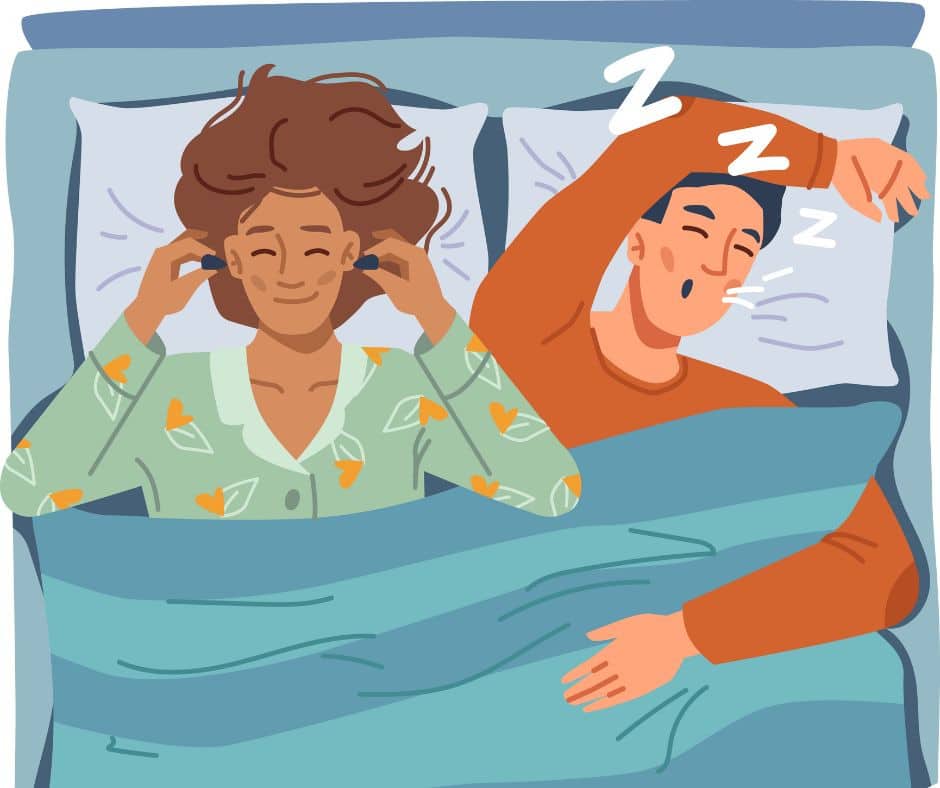
Sleep is a vital component of our overall well-being. It’s a time when our bodies rejuvenate and our minds reset. However, for millions around the world, sleep is a battleground where they unknowingly fight a silent adversary known as sleep apnea. This disorder, characterized by interrupted breathing during sleep, can have severe implications if left untreated. In this article, we’ll delve into the world of sleep apnea and explore seven signs that should never be overlooked.
What are the 7 Signs of Sleep Apnea?
Loud and Disruptive Snoring: Snoring is a common occurrence, but when it becomes thunderous and disrupts the sleep of those around you, it might be more than just an annoyance. Loud snoring, especially coupled with choking or gasping sounds, could indicate the presence of sleep apnea. This occurs when the airway is partially blocked, causing the characteristic sound as air struggles to pass through.
Excessive Daytime Fatigue: We’ve all had days when we felt a bit tired, but persistent daytime fatigue that leaves you struggling to stay awake during work meetings, conversations, or even while driving demands attention. Sleep apnea prevents you from reaching the deep, restorative stages of sleep, leading to chronic exhaustion.
Morning Headaches: Waking up with a pounding headache might not just be a result of a late-night Netflix binge. Sleep apnea can cause oxygen levels to drop during the night, leading to headaches upon waking. If these headaches become a regular occurrence, it’s a sign to consider.
Irritability and Mood Swings: Are you feeling unusually irritable or experiencing mood swings that seem out of character? Sleep apnea’s impact on sleep quality can disrupt the emotional equilibrium, leaving you feeling cranky, short-tempered, and even depressed.
Frequent Nighttime Waking: While waking up once or twice during the night is normal, if you find yourself waking up frequently without any apparent reason—perhaps gasping for air or feeling restless—it might be a red flag. These awakenings disrupt your sleep cycle, preventing you from enjoying the restorative benefits of deep sleep.
Difficulty Concentrating: If you’re struggling to focus at work, school, or during daily tasks, sleep apnea could be a hidden culprit. The fragmented sleep caused by the disorder impairs cognitive function, affecting memory, concentration, and overall mental clarity.
High Blood Pressure: Sleep apnea and high blood pressure often go hand in hand. The recurrent interruptions in breathing cause the body’s stress response to activate, leading to elevated blood pressure levels. If you’ve been diagnosed with hypertension and conventional treatments aren’t yielding expected results, sleep apnea might be an underlying factor.
How do you fix Sleep Apnea?
Sleep apnea, with its stealthy nature, has the potential to wreak havoc on your health and quality of life. Recognizing its signs and seeking timely medical attention can make a world of difference. If you or someone you know is experiencing persistent loud snoring, daytime fatigue, morning headaches, irritability, frequent nighttime waking, difficulty concentrating, or high blood pressure, it’s crucial to consult healthcare professionals like the team at Stafford Family Dental.
Our team at Stafford Family Dental has expertise with Sleep Apnea. We utilize the Sleep Image Ring System, which helps you record and measure the quality of sleep you’re getting. With this information provided, we can help assess your next steps to getting a good night’s rest.
Remember, a restful night’s sleep is not a luxury but a necessity. By addressing sleep apnea, you’re not only reclaiming your nights but also your vitality and well-being. Don’t let sleep apnea remain an uninvited guest in your life; take charge and embrace the transformative power of quality sleep.
To book an appointment for a Sleep Apnea Assessment, please complete the form here.
